First published 21 May 2024
QUT has a group of experts to help tell the stories and navigate the issues and challenges as the state prepares for an event that is set to shape the future of Queensland.
Topics of expertise include: sport and exercise psychology; preparing future Olympians and Paralympians; eSports; urban design; sustainability; transport infrastructure; brand design; robotics and AI; Indigenous Australian perspectives; data science; tourism; regional development; social welfare and more.
QUT: Focus on 2032
Sport
QUT Director of Sport, Olympian and Commonwealth Games medallist
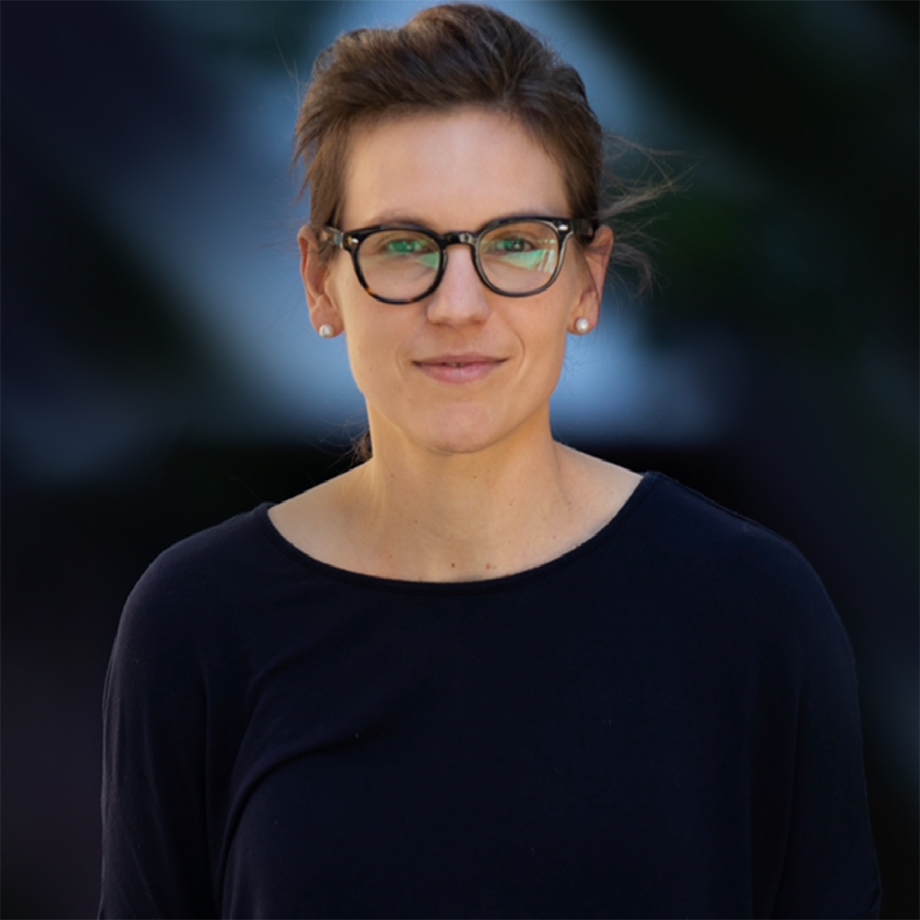 Emily Rosemond OLY is the Director of Sport at QUT. A former Winter Olympian and Commonwealth Games Medallist with over 20 years’ operating in the high-performance sporting environment. She leads the development and implementation of QUT’s Sporting Strategy and is focussed on leveraging the strengths of new technologies to support and inform their application across the national sporting industry.
Emily Rosemond OLY is the Director of Sport at QUT. A former Winter Olympian and Commonwealth Games Medallist with over 20 years’ operating in the high-performance sporting environment. She leads the development and implementation of QUT’s Sporting Strategy and is focussed on leveraging the strengths of new technologies to support and inform their application across the national sporting industry.
She possesses significant experience in major event delivery, having managed operations at the Gold Coast Commonwealth Games in 2018, and working across the high-performance sector spanning several national sporting organisations as part of the Australian Institute of Sport’s high performance’s ‘Win Well’ strategy. She has also led the development and implementation of new and immersive infrastructure and programs at QUT, including the Virtual Cycling Centre, esports program and sports-technology initiatives operating in rural, remote, and Indigenous communities.
She says that building a strong and innovative sporting foundation for the long term, beyond the ‘decade of opportunity’ that Brisbane 2032 presents, requires the discipline of an athlete whilst maintaining a holistic and collaborative approach to ensure the goals of the Olympic Movement, to contribute to building a better world that educates youth through sport practice can be achieved.
The business of sport, sports governance and sports law
 An experienced commercial lawyer and non-executive director, Professor Sarah Kelly, Head of the QUT Graduate School of Business, is renowned for her expertise in sports management, sports law, governance and technology.
An experienced commercial lawyer and non-executive director, Professor Sarah Kelly, Head of the QUT Graduate School of Business, is renowned for her expertise in sports management, sports law, governance and technology.
She is passionate about the power of sports and education and their positive impact on people, organisations and society. Her recent published work includes mega-event legacy, sport sponsorship strategy, sports integrity and governance, sports diplomacy, social impacts of esports and women’s sports commercialisation.
Professor Kelly is a member of the Brisbane 2032 Games Organising Committee board, and Deputy Chair of the Brisbane Lions AFL Football Club and Events Management Queensland. In 2021, she was awarded an Order of Australia Medal for her contributions to tertiary education and sports administration.
Professor Kelly is available to comment on the intersection of sports and education and how they can be leveraged for broader societal change, fostering positive community and international relations, in addition to the business of sport, sports innovation and sports law.
Experienced Olympic and Paralympic sport and exercise psychologist 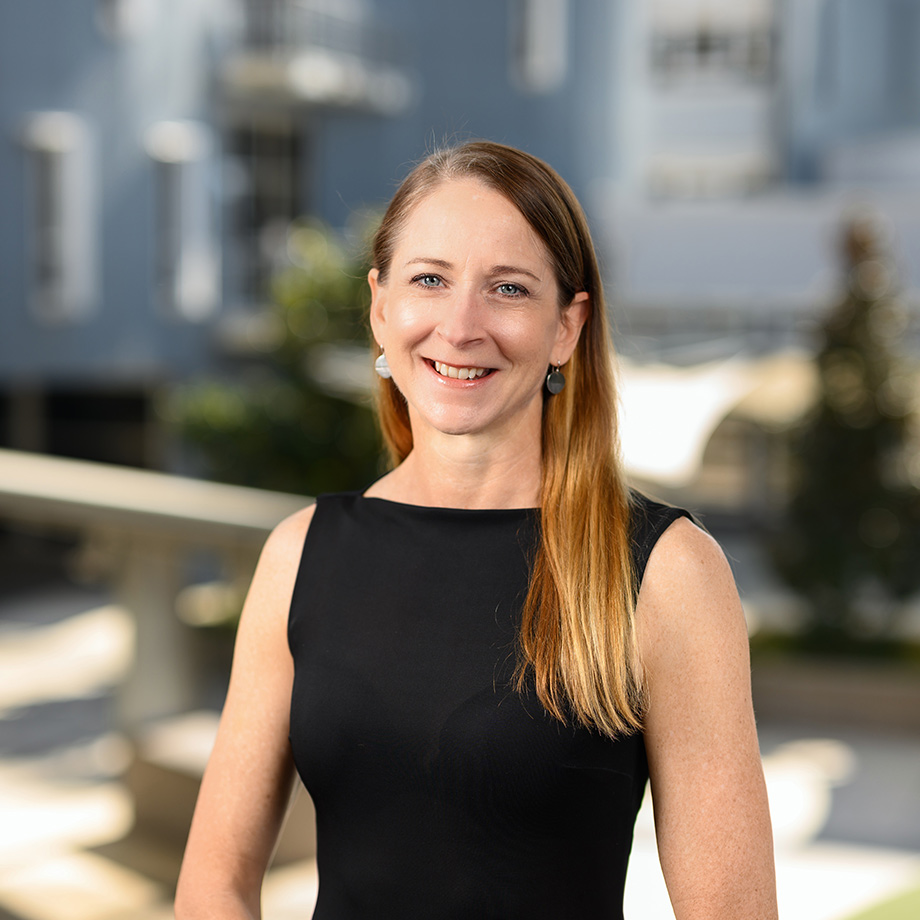
Professor Gene Moyle is a senior sport and exercise psychologist who has collaborated with elite athletes across a range of sports from state, national, Olympic and Paralympic programs.
Her research has centred on the application of performance psychology, with a focus on enhancing human potential, performance, and health and wellbeing.
Supporting a number of Winter Olympic programs across three Olympic cycles, in addition to her previous work as a Senior Performance Psychologist for the Australian Institute of Sport and former Senior Advisor to the Queensland Academy of Sport, Professor Moyle understands both the frontline servicing needs and the backend program requirements in order to best prepare athletes for performing at the ‘greatest show on earth’.
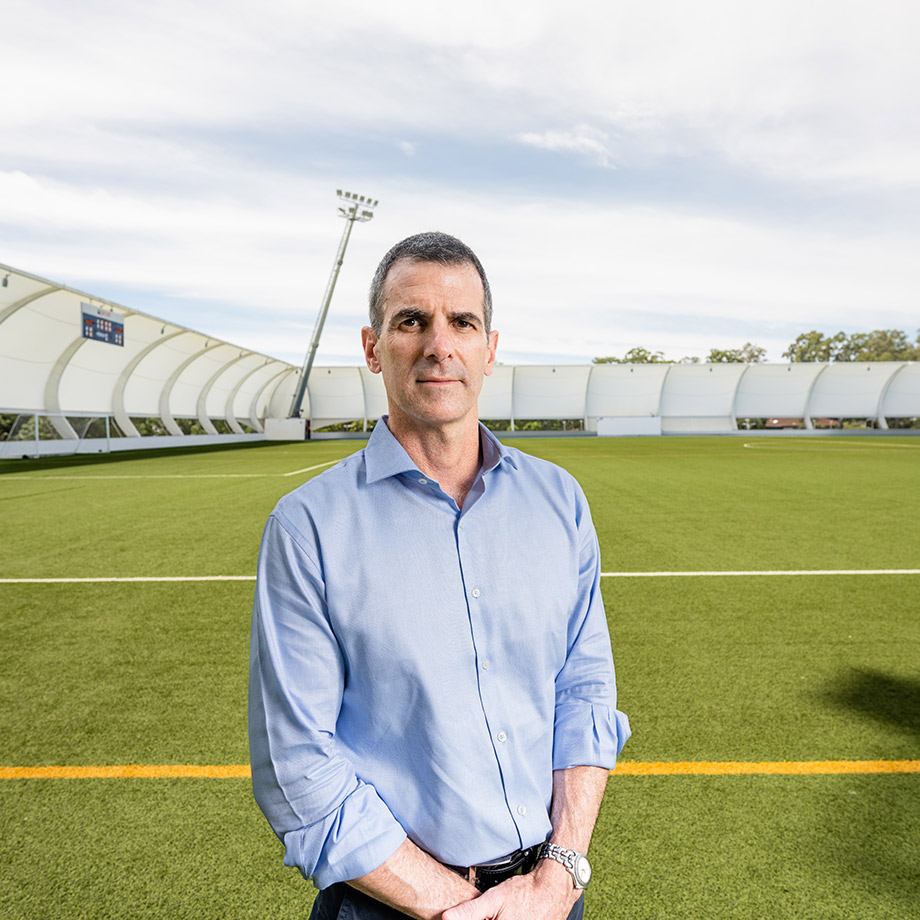 Professor Nick Brown is the Head of School for Clinical Sciences in the Faculty of Health at QUT. In a previous role he was, he was the Deputy Director, Performance Science and Innovation at the Australian Institute of Sport overseeing and delivering applied research and innovation outcomes for Australian Olympic and Paralympic sport across the London, Sochi, Rio, Pyeongchang and Tokyo Olympic and Paralympic cycles.
Professor Nick Brown is the Head of School for Clinical Sciences in the Faculty of Health at QUT. In a previous role he was, he was the Deputy Director, Performance Science and Innovation at the Australian Institute of Sport overseeing and delivering applied research and innovation outcomes for Australian Olympic and Paralympic sport across the London, Sochi, Rio, Pyeongchang and Tokyo Olympic and Paralympic cycles.
He was the AOC Director of Performance Services in Rio at the 2016 Olympic Games. With sports medicine practitioners, engineers and sport scientists, and in collaboration with state partners, sporting organisations and universities, he led research and innovation for Australian sport for eight years.
Professor Brown has previously worked and lectured as a podiatrist in Brisbane before completing a PhD in biomechanics and a post-doctoral fellowship in bioengineering at the University of Texas at Austin, USA. He has worked in the Departments of Orthopaedics and Biomedical Engineering at the University of Utah, USA, and was the Director of the University of Canberra Clinical School and conjoint Professor of Allied Health research. He has over eighty scientific publications in international journals across the domains of sport, bioengineering, allied health and human performance. He has published well-cited papers on the biomechanics of fast running and the aerodynamics of elite cyclists.
Professor Brown can discuss the delivery of performance services in sport, as well as running and footwear biomechanics, and sports aerodynamics.
20 years’ of ‘real world’ experience in elite sport
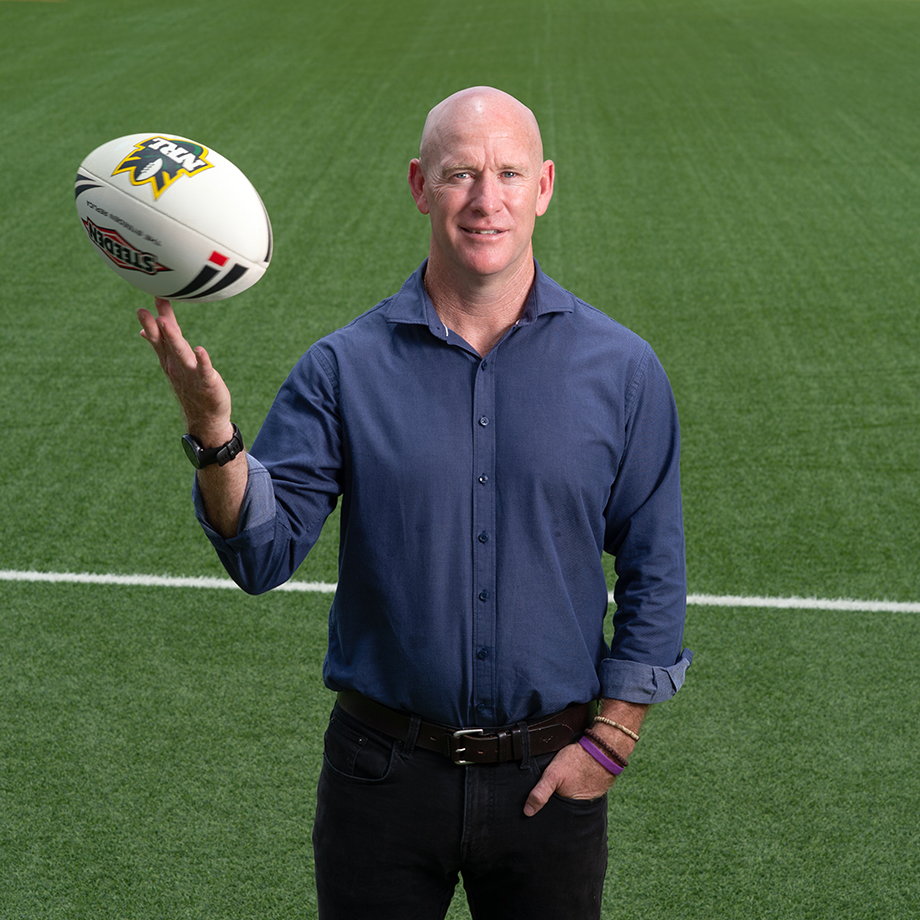 Associate Professor Vince Kelly is a world leader in sports science and strength and conditioning research with over 80 publications in the field. He is currently conducting research to help athletes win an Olympic medal.
Associate Professor Vince Kelly is a world leader in sports science and strength and conditioning research with over 80 publications in the field. He is currently conducting research to help athletes win an Olympic medal.
He can discuss everything from children participating in sport to what it takes to win an Olympic medal. Specific areas include new technologies in athlete preparation, coach practices, recovery techniques, sport nutrition supplementation and mental health in athletes. He is a regular media commentator for sport science issues appearing on TV, radio and in print media.
Associate Professor Vince Kelly can also discuss what he has learnt in his more than 20 years’ of ‘real world’ experience in elite sport working in high performance, sport science and strength and conditioning roles in the NRL, Super Rugby and with the Australian Institute of Sport (AIS) and Queensland Academy of Sport (QAS).
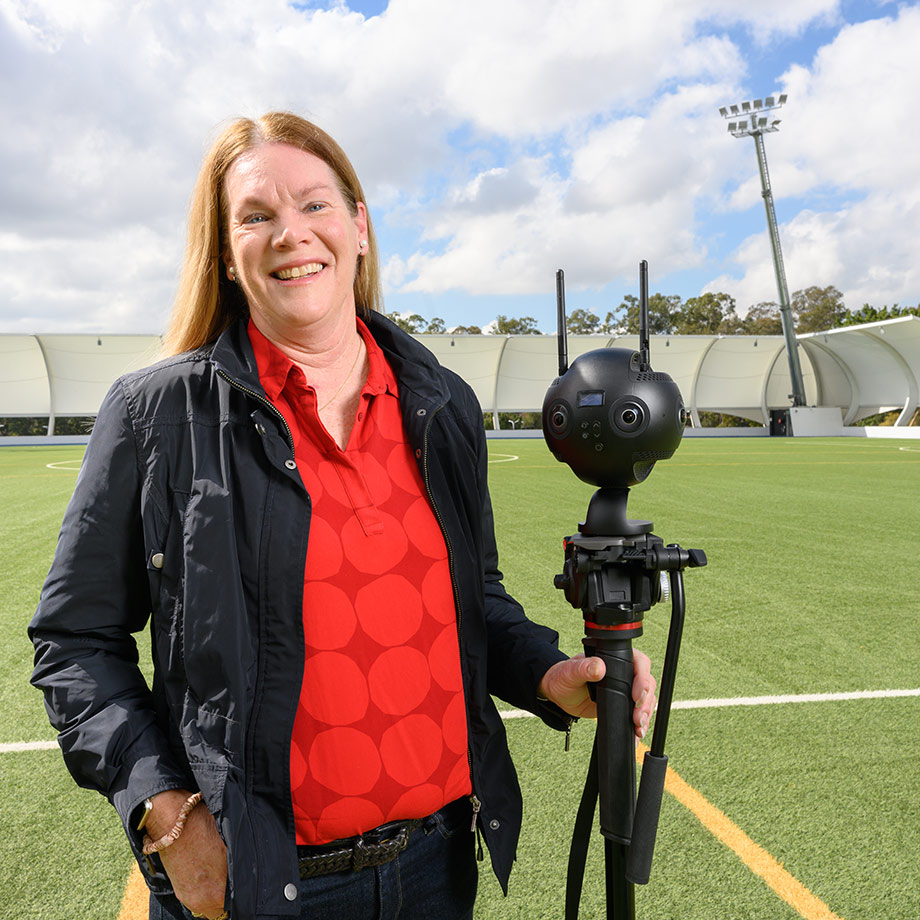 Dr Kath O’Brien is recognised as one of Australia’s leading women shaping the future of sports innovation.
Dr Kath O’Brien is recognised as one of Australia’s leading women shaping the future of sports innovation.
As a Senior Lecturer in the School of Exercise and Nutrition Sciences, Dr O’Brien’s expertise revolves around applying digital technologies such as 360-video and artificial intelligence (AI) to create cutting-edge diagnostic tools for improving peoples’ performance in and through sport.
Data generated from on-field vision related to sport officials deliberate decision actions, movements on field, and dialogue with players also provide Dr O’Brien’s work with a unique live testbed for strategically supporting the sideline management of sport-related concussion.
She is available for comment on the mechanics of adopting artificial intelligence (AI) technologies and 360-vision into sport-based environments, and how the use of advanced technologies such as ‘deep learning’ can potentially optimise athlete recovery times, improve early stabilisation of head injuries, and lower costs associated with ongoing medical expenses, saving the sports industry and Australian economy millions.
“Winning well”: athlete-centred sports data analytics
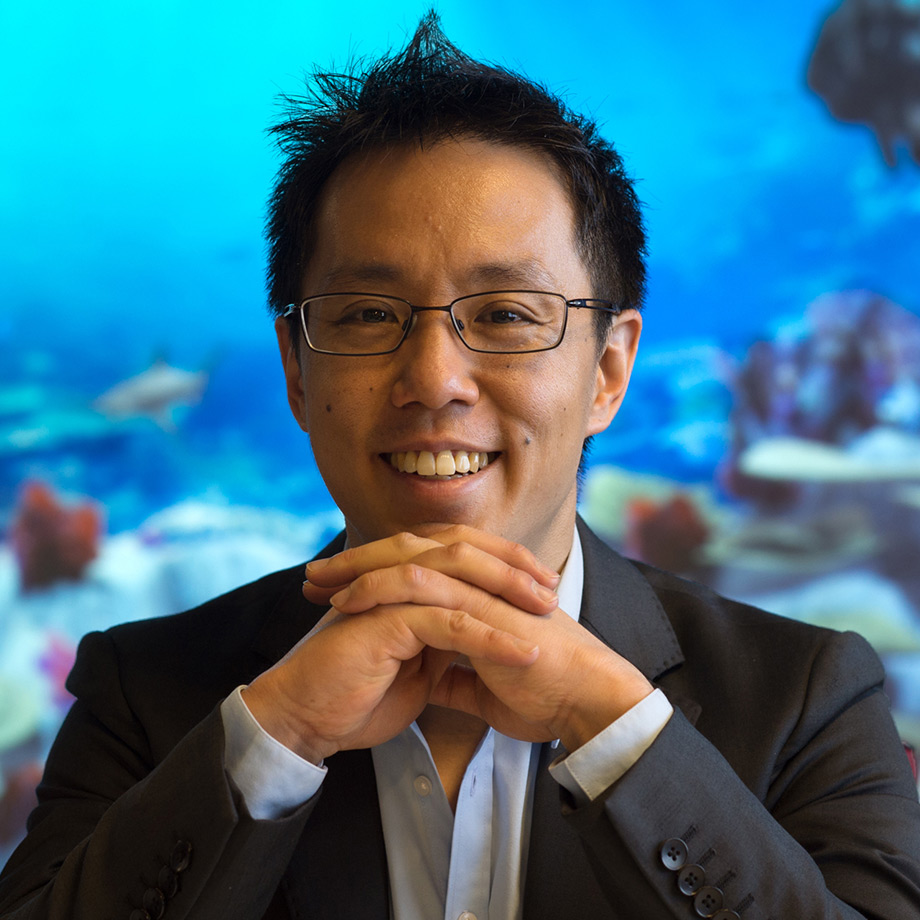 Dr Paul Wu leads the sports systems domain in the QUT Centre for Data Science and is an industry research fellow in QUT’s strategic partnership with the Australian Institute of Sport (AIS) and Queensland Academy of Sport (QAS). He researches in the area of complex systems and resilience, Bayesian statistics and machine learning with collaborations in sports and marine ecology.
Dr Paul Wu leads the sports systems domain in the QUT Centre for Data Science and is an industry research fellow in QUT’s strategic partnership with the Australian Institute of Sport (AIS) and Queensland Academy of Sport (QAS). He researches in the area of complex systems and resilience, Bayesian statistics and machine learning with collaborations in sports and marine ecology.
He says that collaborative efforts between athletes, coaches, sports scientists, data scientists and others are instrumental in addressing challenging problems in elite and community sports. With a new national strategy towards winning well, more sophisticated and novel research opportunities have arisen to address factors including performance, injury prevention, wellbeing and their interaction.
Dr Wu can discuss a range of sports analytics research projects including in swimming, triathlon, paddling, basketball, injury and subsequent injuries, physiology and fatigue. He can also discuss challenges posed by data of different types, new technologies and their modelling and analysis such as for predictive decision support and management.
Leveraging data analytics to gain competitive advantage
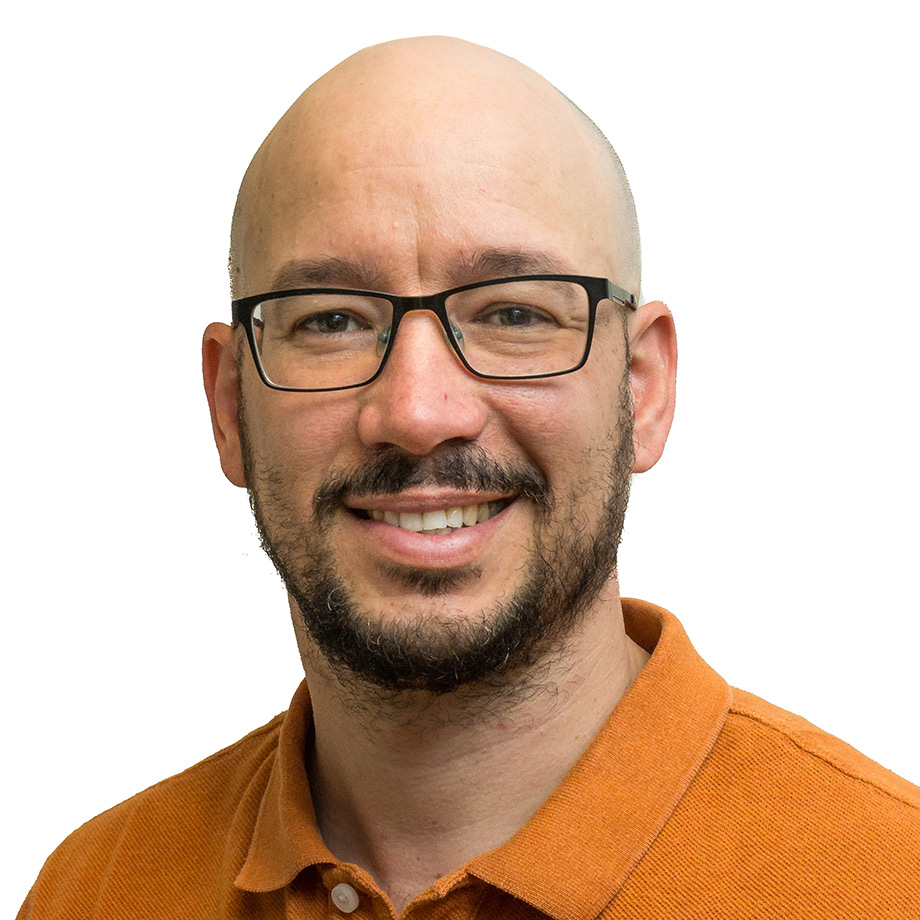 Dr Edgar Santos-Fernandez is a sports analytics and data science researcher and expert from the School of Mathematical Sciences at the QUT Faculty of Science.
Dr Edgar Santos-Fernandez is a sports analytics and data science researcher and expert from the School of Mathematical Sciences at the QUT Faculty of Science.
With a focus on leveraging data analytics to gain competitive advantage, Dr Santos-Fernandez specialises in the analysis of challenging and complex datasets.
His expertise lies in using statistical and machine learning models to: extract new insights from data; enable the development of strategies that optimise team performance; inform decision-making, and drive success in sports.
How can athletes gain a competitive edge?
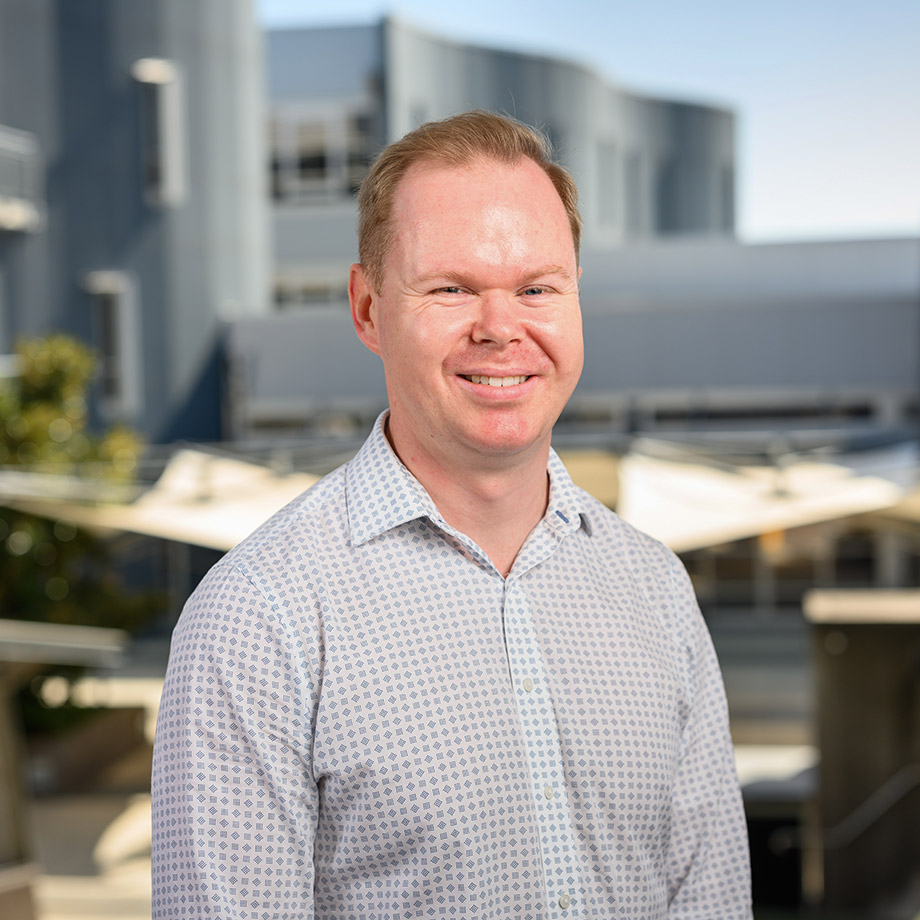 Associate Professor Geoff Minett is a sports scientist and discipline lead for sport, exercise, health and physical education in the QUT School of Exercise and Nutrition Sciences.
Associate Professor Geoff Minett is a sports scientist and discipline lead for sport, exercise, health and physical education in the QUT School of Exercise and Nutrition Sciences.
His expertise is in understanding the physiological interactions between exercise performance and fatigue, where environmental stressors (e.g., heat) are used to exacerbate underlying mechanisms, and applied fieldwork, where developing monitoring systems to understand athlete experiences is key.
Professor Minett can discuss optimising training for peak performance, the effects of extreme environments on athletes, and the use of recovery strategies to gain a competitive edge.
Sustainability
How will the Olympic and Paralympic Games be climate positive?
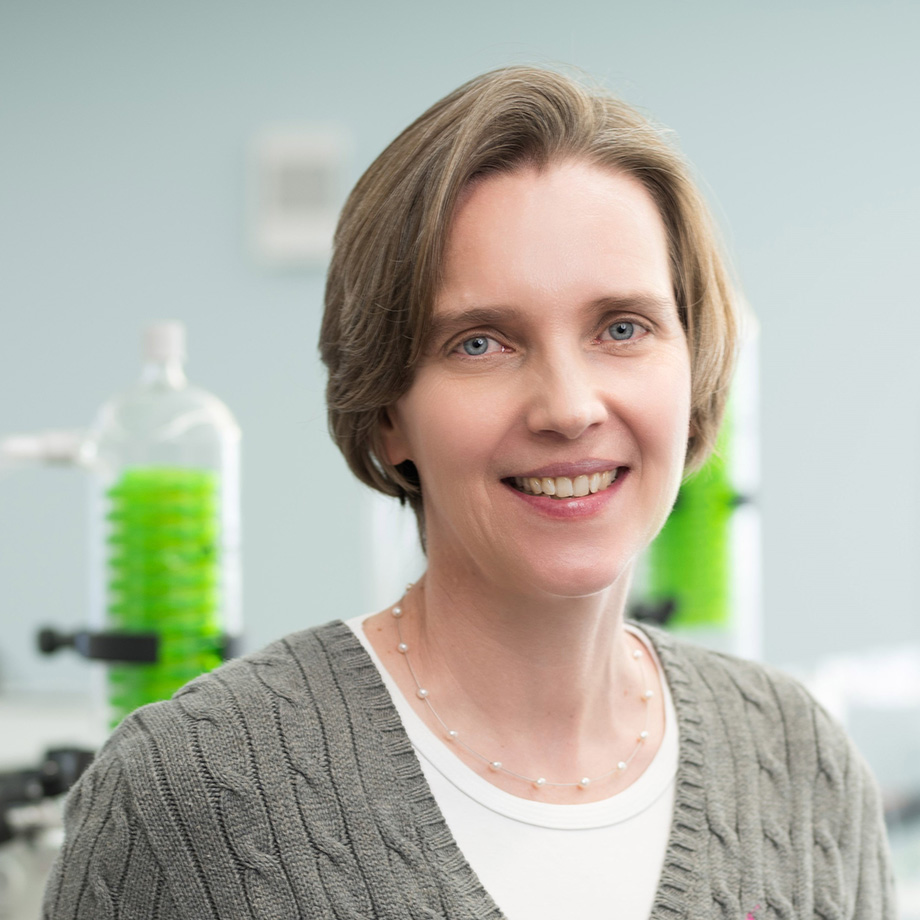 Professor Leonie Barner is a chemist and Principal Research Fellow at the QUT Faculty of Science, School of Chemistry & Physics.
Professor Leonie Barner is a chemist and Principal Research Fellow at the QUT Faculty of Science, School of Chemistry & Physics.
Professor Barner - who is the Director of the QUT Centre for a Waste-Free World - says that delivering truly climate positive Olympic and Paralympic Games will be a very challenging undertaking and will not be achievable by only having a carbon budget and by offsetting carbon emissions.
“Concepts for sustainable and green energy, transport, tourism, hospitality, food, and waste will have to be developed and implemented.”
“It will be important to incorporate systems thinking and lifecycle assessment, i.e., assessments of the environmental impacts covering the production, use, and end-of-life phases of the games,” Professor Barner says.
What does it mean to host the world’s first climate-positive Olympics?
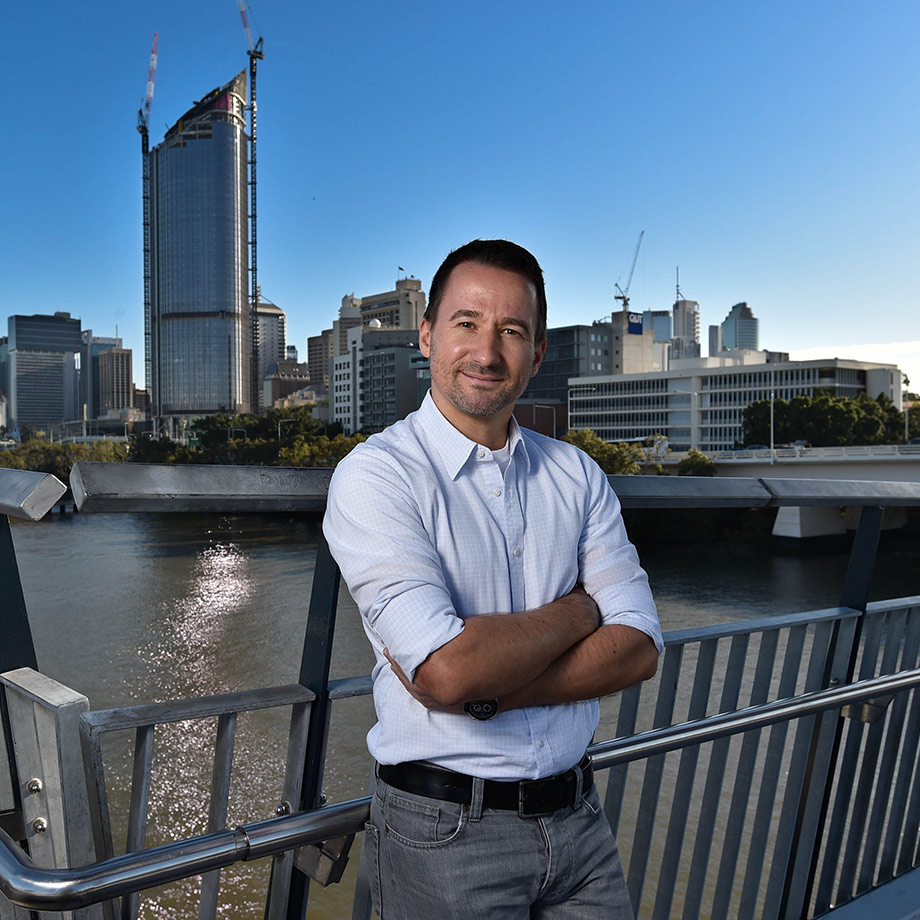 For more than two decades, Professor Marcus Foth from the QUT School of Design has led ubiquitous computing and interaction design research into interactive digital media, screen, mobile and smart city applications. He is a founding member of the More-than-Human Futures research group at QUT.
For more than two decades, Professor Marcus Foth from the QUT School of Design has led ubiquitous computing and interaction design research into interactive digital media, screen, mobile and smart city applications. He is a founding member of the More-than-Human Futures research group at QUT.
Professor Foth says hosting the 2032 Olympic and Paralympic Games will require a departure from old neoliberal policies grounded in neoclassical economics that suggest infinite growth. A credible commitment to genuinely climate-positive Olympics and Paralympics cannot just rely on dubious carbon offsets. It requires new economic thinking and new design ideas. It requires us all to stop prioritising human comfort and convenience (and profit) at the expense of the planet’s wellbeing.
Professor Foth can discuss a range of topics including the role of technology in cities and urban infrastructure; future mobility and transport; the use of participatory data analytics to maintain a social licence to operate digital twins; the creation of non-human personas as a way to include nature in urban design, and the fallacy of believing in technological solutionism as a panacea to solve all of humanity’s problems.
Globally leading researcher in smart and sustainable city development
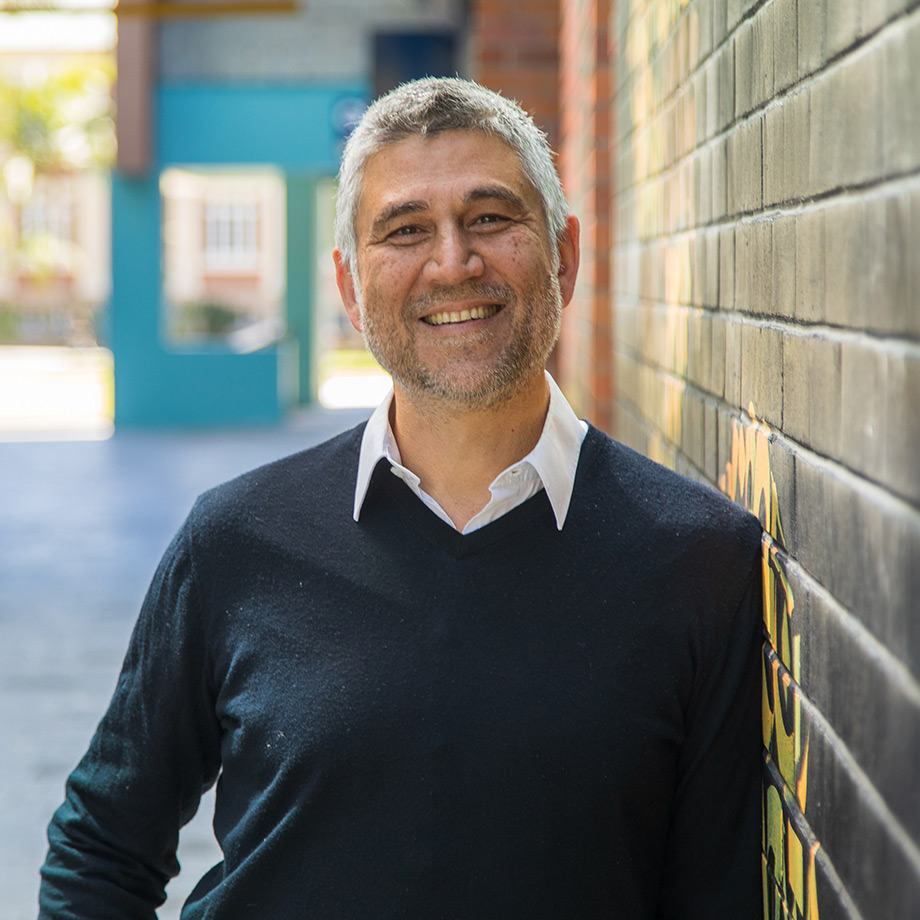 Professor Tan Yigitcanlar is an eminent researcher and author with international recognition and impact in the field of smart and sustainable city development. As a Professor of Urban Studies and Planning at the School of Architecture and Built Environment, he researches into three interconnected themes: smart technologies, communities, cities, and urbanism; sustainable and resilient cities, communities, and urban ecosystems; knowledge-based development of cities and innovation districts.
Professor Tan Yigitcanlar is an eminent researcher and author with international recognition and impact in the field of smart and sustainable city development. As a Professor of Urban Studies and Planning at the School of Architecture and Built Environment, he researches into three interconnected themes: smart technologies, communities, cities, and urbanism; sustainable and resilient cities, communities, and urban ecosystems; knowledge-based development of cities and innovation districts.
He leads the QUT Smart City Research Group, co-directs QUT City 4.0 Lab, oversees the Responsible Urban Innovation program of the Lab, and directs the Australia-Brazil Smart City Research and Practice Network.
Professor Yigitcanlar is available for comment on the smart and sustainable transformation of urban-regions, particularly in the context of the host region of Brisbane 2032 Olympics and Paralympics, and the role of technology-policy-community triad as the main driver for such transformation.
Sustainability of construction materials for Brisbane 2032
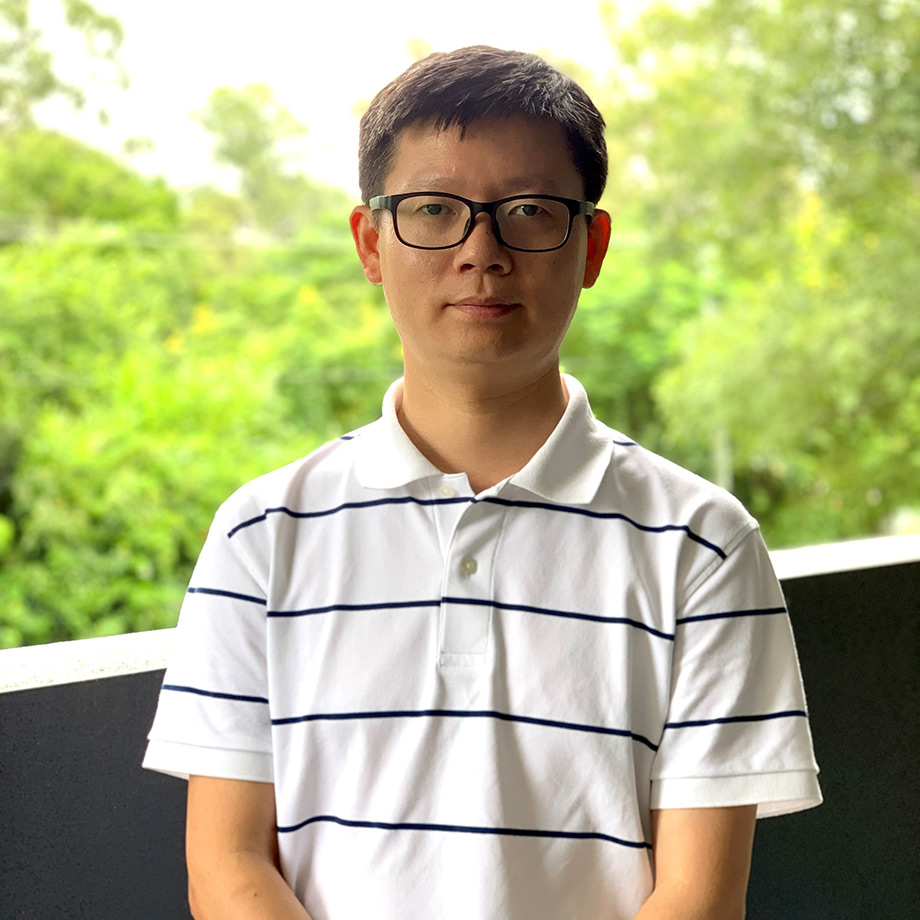 Dr Yilin Gui is a senior lecturer of geotechnical engineering from the School of Civil and Environmental Engineering at QUT.
Dr Yilin Gui is a senior lecturer of geotechnical engineering from the School of Civil and Environmental Engineering at QUT.
He has a wide-ranging expertise in geoengineering and construction materials, with a particular focus on characterising, modelling, and applying construction materials. Additionally, he has extensive knowledge in the sustainability of construction materials.
Currently, he is leading a QUT research group comprising 11 investigators from various faculties such as Engineering, Science, Public Health, and the QUT Business School. The group is dedicated to exploring sustainable engineered construction materials and their technical, social, economic, and environmental impact on the construction industry. With his team's expertise, there are numerous opportunities to contribute to the "Green and Gold Runway towards the Brisbane 2032 Olympic and Paralympic Games”.
Dr Gui can discuss the plan to sustainability in construction materials and their importance in Brisbane 2032 Olympic and Paralympic Games.
Circular textile procurement will be essential in making the Olympics and Paralympics climate-positive
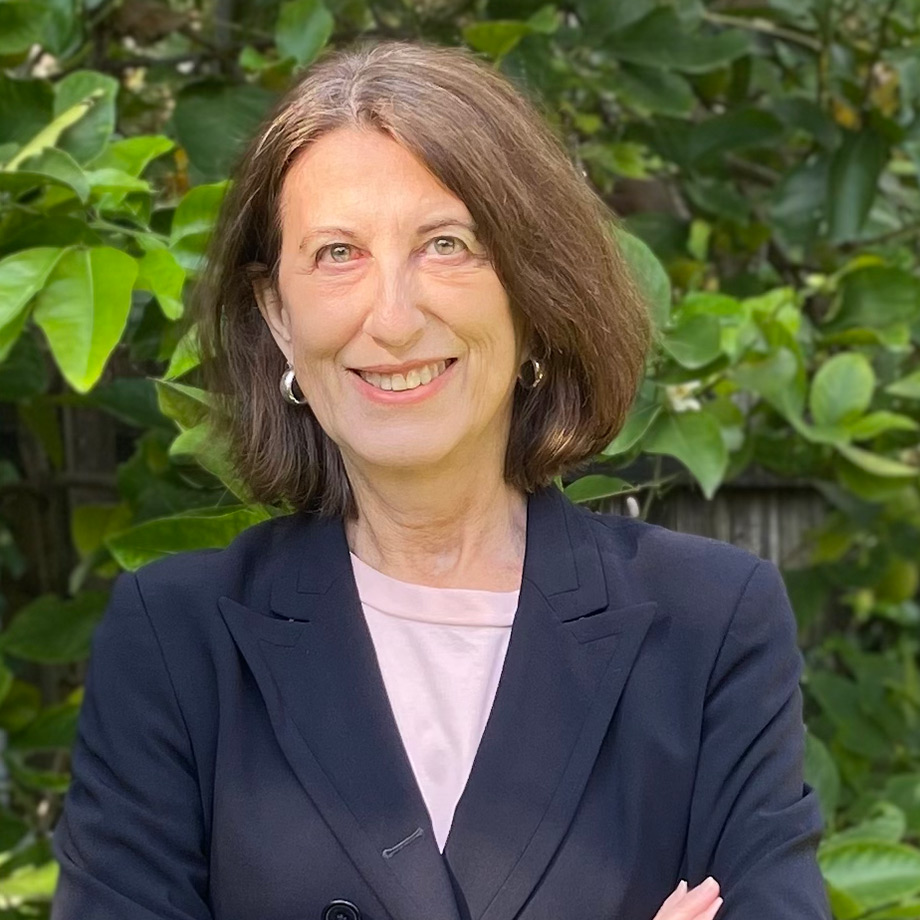
Associate Professor Tiziana Ferrero-Regis is the co-leader of the TextileR Group, and a lecturer and scholar in Fashion at the School of Design in the Faculty of Creative Industries, Education & Social Justice.
Professor Ferrero-Regis has researched and worked with the fashion industry in Brisbane for more than a decade, placing Brisbane’s fashion history and its contemporary fashion revival on the international research map.
Her engagement in public procurement and her project “Mapping Brisbane’s fashion and textiles neighbourhoods” brought together stakeholders from industry and local and State governments to discuss circular economy.
Professor Ferrero-Regis says that textiles and clothing must be considered and included to achieve a climate positive Olympics and Paralympics in Brisbane.
“Public procurement must be part of the fashion and textile circular economy. It can lead in the establishment and development of a local manufacturing industry. Switching to sustainable procurement can help direct change in circularity, and especially in reaching local institutions’ environmental goals.”
“The world will be looking at us in 2032 there will be thousands of volunteers needing uniforms, as well as corporate clothing for medal presenters,” Professor Ferrero-Regis said.
“It will be fundamental that these uniforms are manufactured sustainably and ethically, that there is transparency at all stages in the supply chain and especially that then the clothing will be repurposed or disposed sustainably.”
Professor Ferrero-Regis is available to discuss barriers and challenges to the circular economy in fashion and textiles, and strategies to build a road map to achieving a climate positive clothing and textile industry in the region and Queensland by 2032.
Social Justice
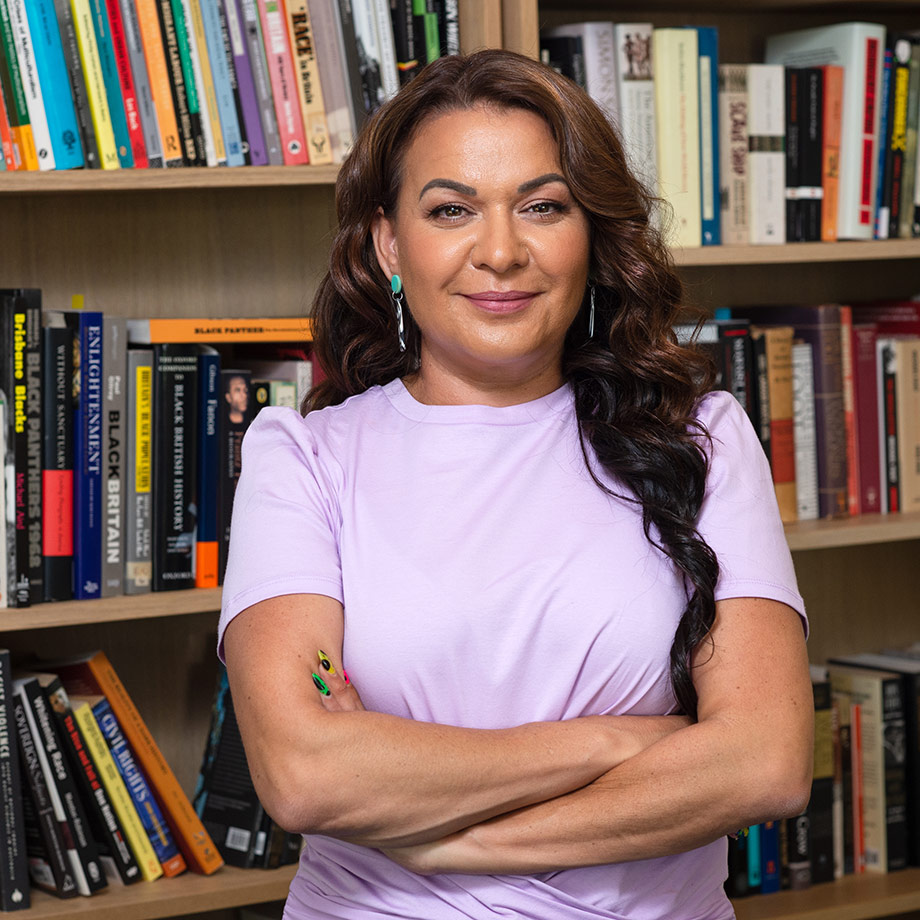 Professor Chelsea Watego is a Munanjahli and South Sea Islander woman, Professor of Indigenous Health and Executive Director of the QUT Carumba Institute.
Professor Chelsea Watego is a Munanjahli and South Sea Islander woman, Professor of Indigenous Health and Executive Director of the QUT Carumba Institute.
Her scholarship is concerned with the structuring impact of 'race' in the production of health inequalities. She is presently engaged in a major grant concerned with the building of Indigenous Health Humanities as a new field of research; a field committed to the survival of Indigenous peoples locally and globally, and foregrounds Indigenous intellectual sovereignty. Her debut book, Another Day in the Colony was released in 2021 and has been met with critical acclaim.
Professor Watego notes that questions of Indigenous sovereignty, stolen land and racial inequalities have not figured so far in discussions about the prospect of the Olympics and Paralympics. She is particularly concerned to challenge the inevitable relegation of unceded sovereignty to the category of 'Indigenous Issues', which in the past has amounted to no more than an Acknowledgement of Country and cultural performance.
There is a specific Black political dimension to the Olympic and Paralympic Games, set presently as they are against a current backdrop of the criminalisation of Aboriginal and Torres Strait Islander children and young people, continuing deaths in custody and care, racial inequities in relation to all major social and economic indices and the racism that that Black athletes have faced in the various sporting codes, particularly the NRL and AFL.
Professor Watego is available to discuss these concerns as well as those concerned with Indigenous sporting representation.
Recognising the important role of the Paralympic movement
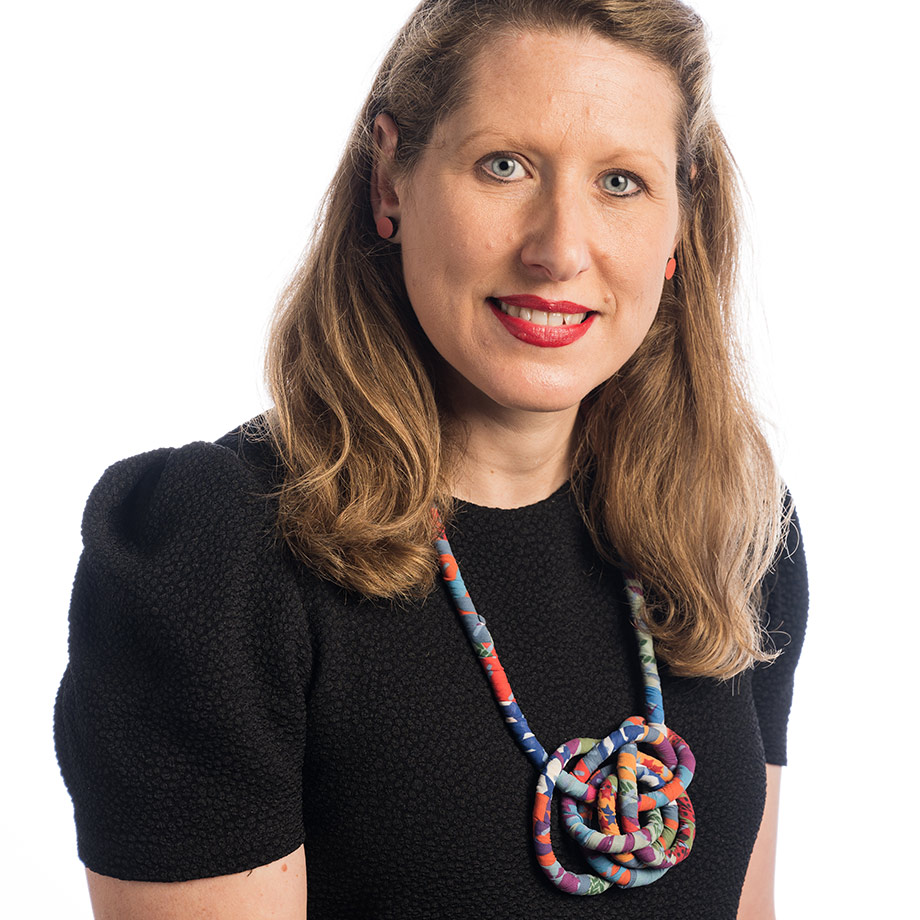
Professor Lisa Scharoun, Head of School of Design, at the QUT Faculty of Creative Industries, Education and Social Justice.
Prof Scharoun has expertise in visualising the Australian Paralympic history through an ongoing collaboration with Paralympics Australia. She co-authored a paper “Design for Paralympians.”
Professor Scharoun says the Paralympic movement has an important role in society, yet it is not well understood.
“Marketing, advertisement, and promotion for the Paralympics are challenging, as historically these have taken a tone of positive affirmation that can border on being patronising to the athletes.
“Visual communication and interaction design are disciplines that can contribute to developing ‘design products’, which will become part of the ‘visual culture’ around the Paralympic movement,” Professor Scharoun says.
Professor Scharoun says that in her previous and current partnership with Paralympics Australia: “… we are exploring how the organisations’ vast visual archive of photography and videography can be visualised using both traditional print media as well as digital media & interactive and VR display to effectively promote the games and be used as an ongoing educational tool for Australian schools and institutions.”
Call on this expert for effects of Olympics and Paralympics on housing
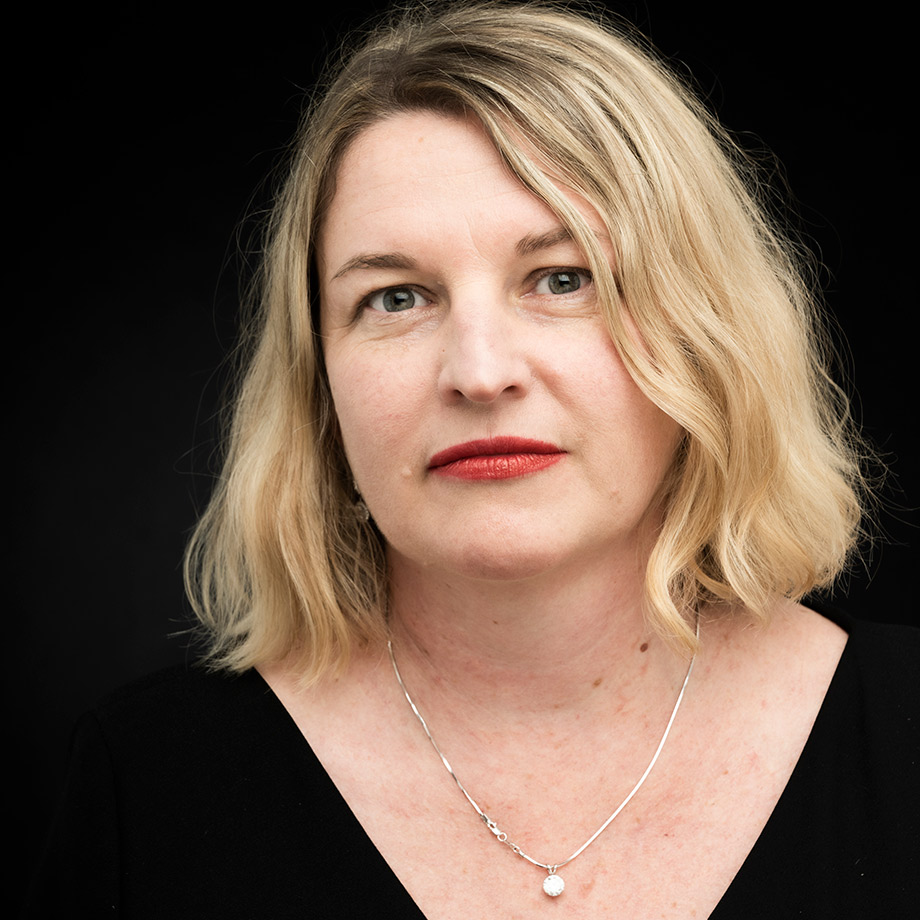 Dr Michelle Newcomb from the QUT School of Public Health and Social Work researches the history of boarding houses and insecure housing within Brisbane.
Dr Michelle Newcomb from the QUT School of Public Health and Social Work researches the history of boarding houses and insecure housing within Brisbane.
Vulnerable tenants and housing workers in Inner Brisbane are concerned about continued closures of affordable housing to make way for Olympic games driven development.
Dr Newcomb’s expertise is in preventing social exclusion and enhancing the response of community services to the changing demographics of Brisbane.
She can discuss the potential impacts of gentrification driven by the Brisbane Olympics and Paralympics and the role of local, state, and federal government in ensuring housing and community cohesion during this period.
Tourism
Benefitting and involving the host community
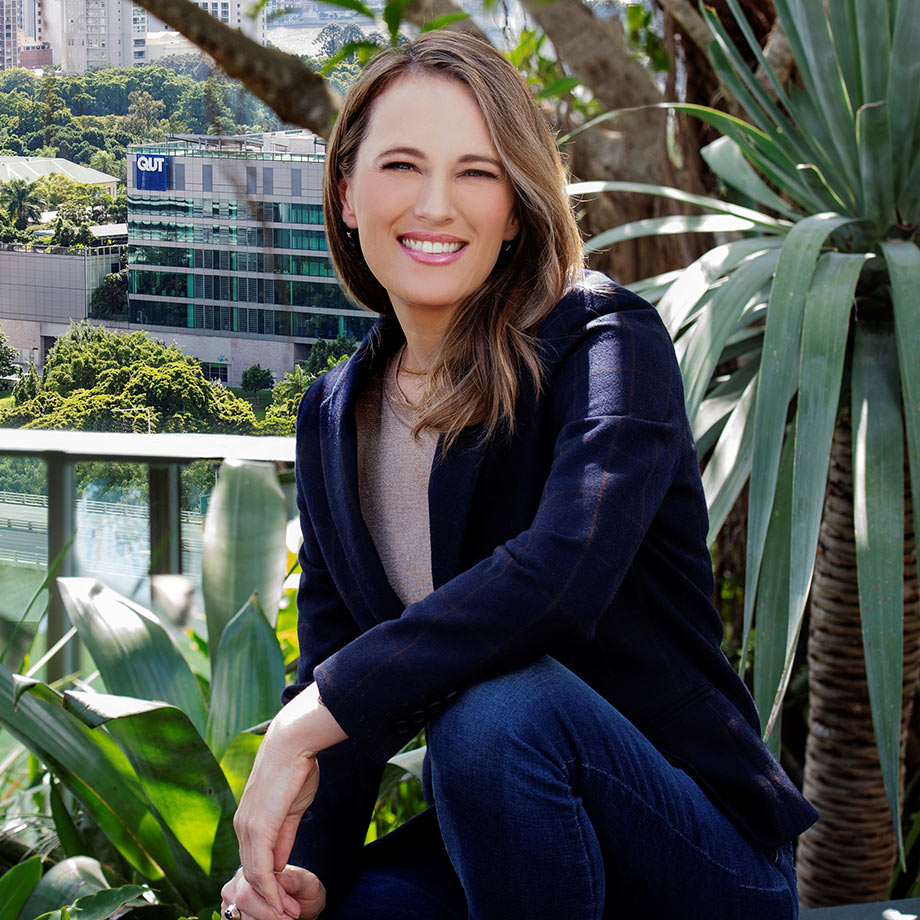 Dr Char-lee McLennan from the QUT School of Management and Centre for Data Science has expertise in tourism and event management, major infrastructure monitoring, digital twins and community impacts of mega events.
Dr Char-lee McLennan from the QUT School of Management and Centre for Data Science has expertise in tourism and event management, major infrastructure monitoring, digital twins and community impacts of mega events.
She says that while most Olympic and Paralympic Games blow out in terms of costs by 176% the Southeast Queensland community desire an efficient, affordable and authentic Games that benefit and involve the host community and learn from the past.
Dr McLennan argues that innovative thinking must reimagine contemporary mega-event governance to deliver foundations for sustainable, resilient futures and transformative legacies for host cities by developing a world-leading, evidence-based decision-making system. Such a system could guide the governance of the Olympic Games to ensure broad but optimised utopic impacts and engagement for host cities.
Brisbane is uniquely positioned to capitalise on the foresight to bring together its world leading capabilities in tourism and data science to establish a data-driven scenario planning, monitoring, and causal evaluation system to track the social, economic and environmental benefits and costs of the Brisbane 2032 Olympics and Paralympics before, during and after the events.
Transport and Infrastructure
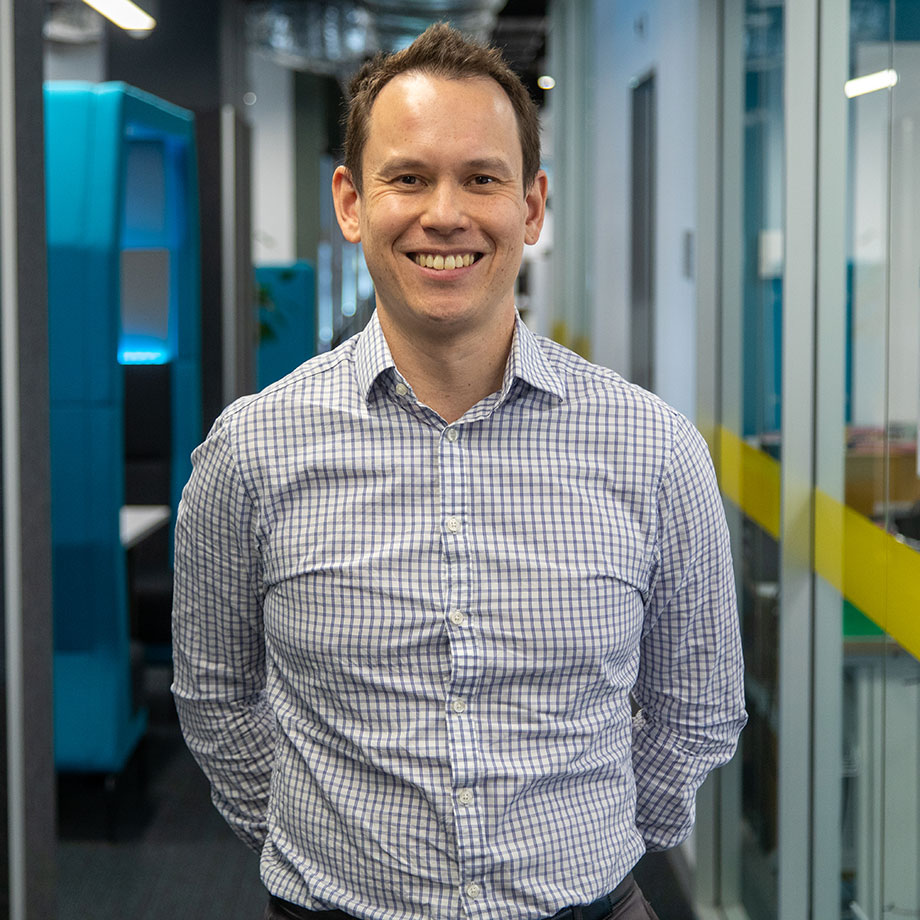 Professor Michael Milford is an expert in autonomous vehicles, robotics, navigation, positioning and artificial intelligence technologies.
Professor Michael Milford is an expert in autonomous vehicles, robotics, navigation, positioning and artificial intelligence technologies.
He is particularly passionate about combining advocacy for the potential benefits of these transformative technologies with a nuanced understanding of their limitations, downsides and ways to manage these.
Professor Milford can cut through the abundance of hype that inevitably surrounds these topics and discuss feasible ways for stakeholders to take advantage of and respond to them, ranging from public interest groups to government and large corporations.
Professor Milford is Joint Director of the QUT Centre for Robotics, an Australian Research Council Laureate Fellow and an elected Fellow of the Australian Academy of Technology and Engineering.
Planning and development of Olympic and Paralympic facilities and infrastructure
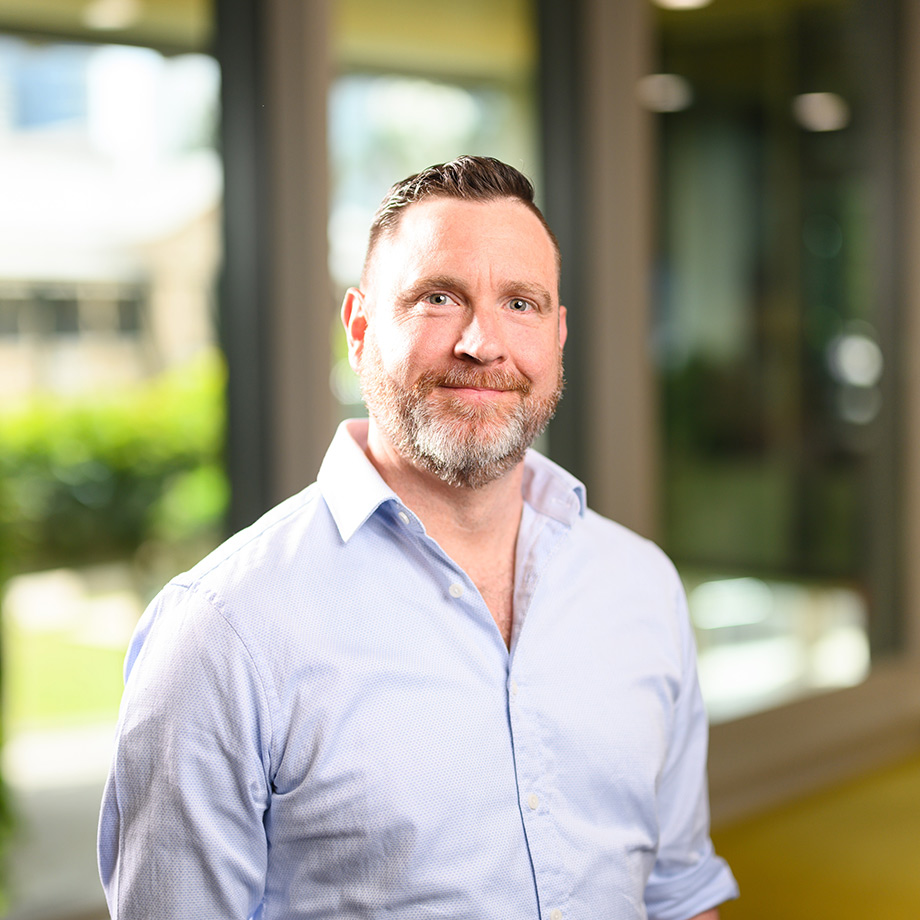 Dr Mark Limb is a lecturer in the QUT School of Architecture and Built Environment. He has expertise in urban and regional planning, with a particular focus on land use and policy evaluation.
Dr Mark Limb is a lecturer in the QUT School of Architecture and Built Environment. He has expertise in urban and regional planning, with a particular focus on land use and policy evaluation.
He is also interested in active transport and community engagement. His research includes the implementation of compact cities, activity centres, and housing affordability.
Dr Limb can discuss aspects related to the planning and development of Olympic and Paralympic facilities and infrastructure, and their potential impacts on the city.
Expert in transport systems analysis and evaluation
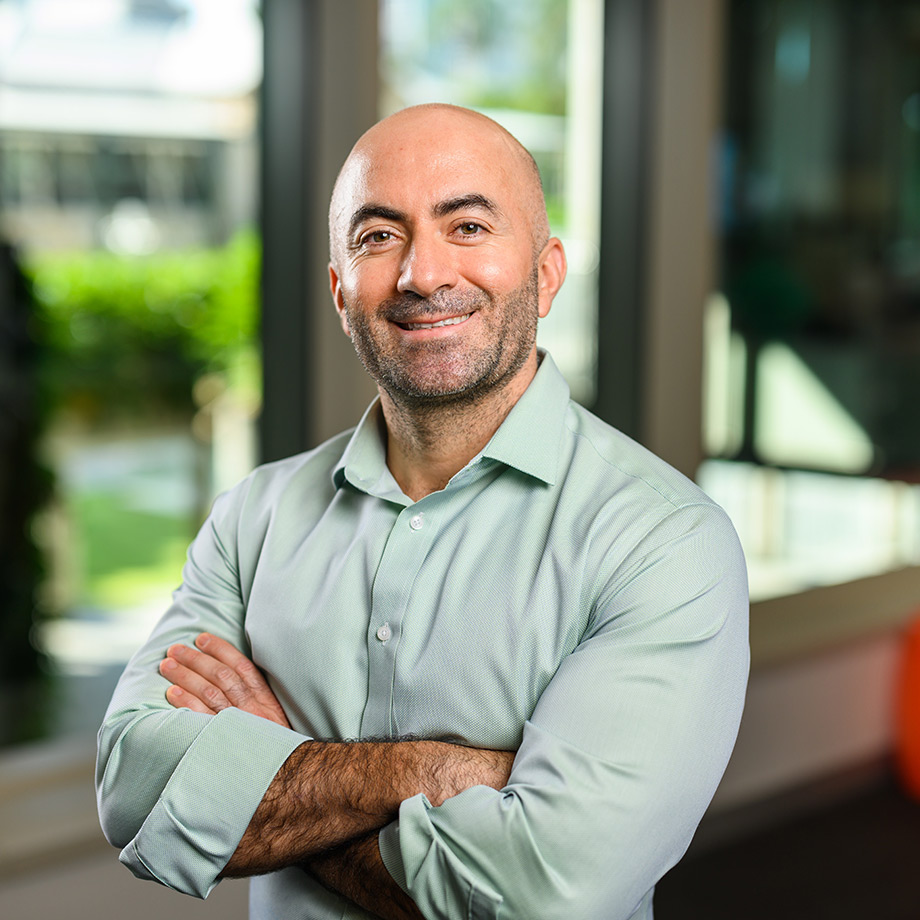 QUT Faculty of Engineering' Professor Alexander Paz is the TMR (Transport and Main Roads) Chair for QUT and is an expert on transport systems analysis and evaluation with a multidisciplinary perspective including travel demand, traffic operations, road safety, infrastructure management, transit, and intelligent transportation systems (ITS).
QUT Faculty of Engineering' Professor Alexander Paz is the TMR (Transport and Main Roads) Chair for QUT and is an expert on transport systems analysis and evaluation with a multidisciplinary perspective including travel demand, traffic operations, road safety, infrastructure management, transit, and intelligent transportation systems (ITS).
Professor Paz, from the School of Civil & Environmental Engineering, is passionate about the deployment of technology, information, and incentives to improve traffic performance and quality of life.
He can discuss topics around planning and evaluating alternatives to prepare the transport network and services for major events such as the Olympics and Paralympics. His professional and academic background in modelling and analysis of large-scale dynamic transport networks is extremely relevant for planning and evaluating scenarios and alternatives to determine the best return for the investment as well as to leave an effective legacy for the region.
Professor Paz has produced research outcomes including frameworks and software systems that can be used to study travellers’ likely response behaviour to interventions and the corresponding traffic flow propagation through the network.
Overseas, he has helped transport agencies evaluate major infrastructure projects and technology. For example, he completed the benefit-cost analysis of the largest ($1 Billion USD) construction job in Nevada’s history, Project Neon. He also helped Federal Highway Administration of the US Department of Transportation evaluate a broad range of ITS alternatives in California.
In Queensland, he has been helping TMR and Brisbane City Council learn more about travel behaviour, road safety, accessibility, traffic operations, and traffic patterns.
Internationally recognised researcher in road network modelling, simulation and traffic control
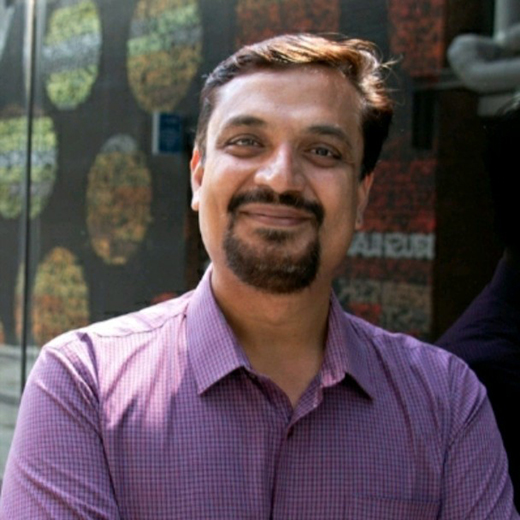 Ashish Bhaskar is an Associate Professor at the QUT Faculty of Engineering, School of Civil and Environmental Engineering and co-leads business and engineering systems research domain at the QUT Centre for Data Science.
Ashish Bhaskar is an Associate Professor at the QUT Faculty of Engineering, School of Civil and Environmental Engineering and co-leads business and engineering systems research domain at the QUT Centre for Data Science.
He is an internationally recognised researcher in road network modelling, simulation, and traffic control. His research focuses on providing evidence-based decision support to alleviate traffic congestion and its detrimental socio-economic and environmental impacts.
He says an integrated and coordinated multimodal transport system will make a big difference in the success of Brisbane 2032 Olympics and Paralympics and the legacy it leaves behind.
Professor Bhaskar can discuss how multimodal transport modelling, AI and digital twins can lead to efficient, safe, and sustainable integrated mobility towards and during Brisbane 2032 Olympics and Paralympics.
Internationally recognised researcher in road safety engineering
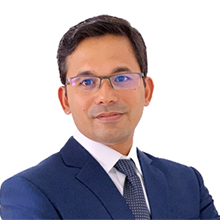 Professor Shimul Haque is a professor of transportation engineering at the QUT Faculty of Engineering, School of Civil and Environmental Engineering.
Professor Shimul Haque is a professor of transportation engineering at the QUT Faculty of Engineering, School of Civil and Environmental Engineering.
He is an internationally recognised researcher in road safety engineering. His research is focused on developing intelligent technologies to save lives and reduce road traffic injuries. He has established a strong track record of improving the theoretical understanding of road safety dynamics at transport facilities and developing efficient and low-cost road safety countermeasures.
He says that the route towards Brisbane 2032 Olympics and Paralympics requires safe and efficient management of road infrastructure and traffic systems. In addition to vehicular traffic, pedestrians, bicycles, and e-scooters need special attention for the safe and efficient management of traffic. The current traffic safety management based on historical crash data will not be capable of measuring risk and providing efficient road safety countermeasures.
Prof Haque can discuss how Artificial Intelligence (AI)-based video analytics could help understand the road safety of various road users in real-time and develop low-cost targeted countermeasures for road safety through appropriate infrastructure decisions and traffic management. He also believes real-time monitoring of traffic movements and incidents or near-misses through AI-based video analytics would be vital to manage the traffic system safely and efficiently.
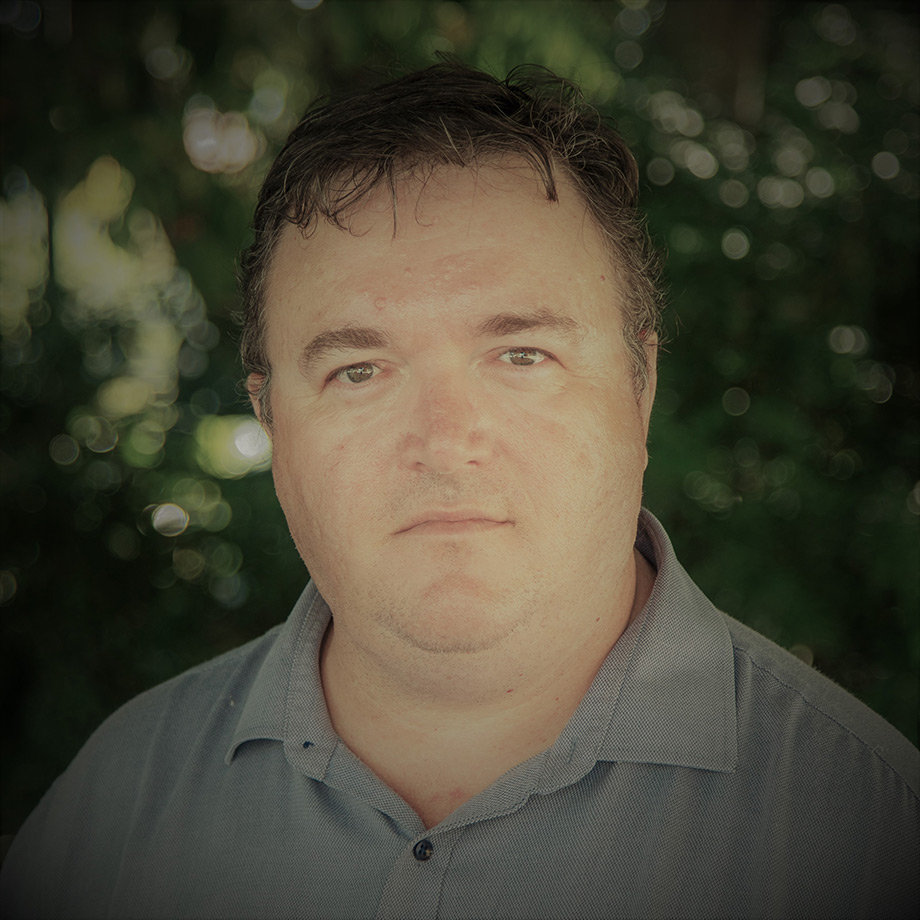 Associate Professor Jonathan Bunker of the QUT Faculty of Engineering conducts research in transit performance through analysis of operation of transit systems and their components via capacity and passenger quality of service.
Associate Professor Jonathan Bunker of the QUT Faculty of Engineering conducts research in transit performance through analysis of operation of transit systems and their components via capacity and passenger quality of service.
He says the Brisbane Olympic and Paralympic Games will rely on transit to deliver the bulk of Southeast Queensland’s mobility needs for spectators, visitors, participants and staff, while still delivering necessary transit to the residents of Southeast Queensland.
Professor Bunker can discuss a range of human and technical factors around transit needs and delivery approaches leading up to and during the Brisbane Olympic Games.
Specialist in finance, economics, infrastructure and property values
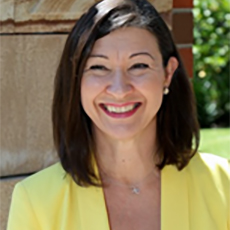 Dr Lyndall Bryant is a senior lecturer and researcher at the QUT Faculty of Business and Law, specialising in Property Economics. Her career spans 20+ years in senior executive roles in the housing, finance and property development sectors as well as over a decade in academia. This diverse background gives Dr Bryant a unique insight into factors that drive housing and other property markets.
Dr Lyndall Bryant is a senior lecturer and researcher at the QUT Faculty of Business and Law, specialising in Property Economics. Her career spans 20+ years in senior executive roles in the housing, finance and property development sectors as well as over a decade in academia. This diverse background gives Dr Bryant a unique insight into factors that drive housing and other property markets.
Dr Bryant is an applied property economist and registered valuer (Qld) whose research interests lie in the wicked problem of housing markets and creating better cities. Her research sits at the juxtaposition of finance, economics, infrastructure and property values. Her work is focused on identifying barriers to effective urban development and providing innovative evidence-based research to inform policy makers.
She has published on various valuation, property development, infrastructure and housing affordability matters, as well as other property related policy issues. These works have been used by stakeholders including multi-national corporations, government agencies and policy makers at all levels.
Media contact:
Rod Chester, QUT Media, 07 3138 2361, media@qut.edu.au
After hours: 0407 585 901, media@qut.edu.au
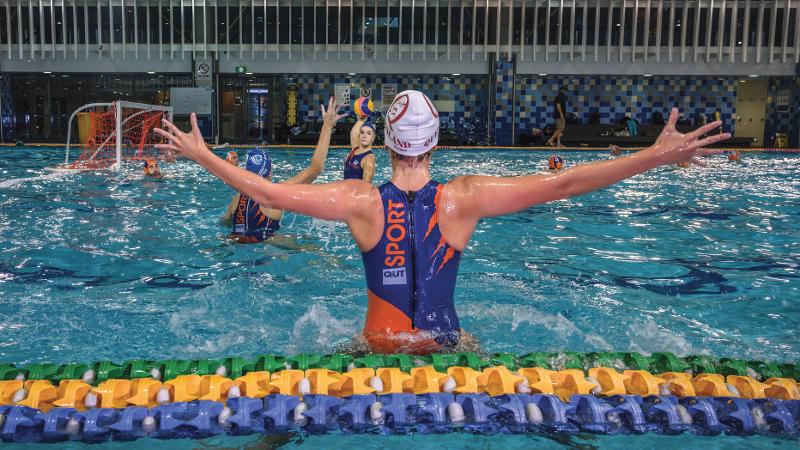

 An experienced commercial lawyer and non-executive director,
An experienced commercial lawyer and non-executive director, 





 Associate Professor
Associate Professor 
 For more than two decades,
For more than two decades, 





 Dr
Dr 

 QUT Faculty of Engineering'
QUT Faculty of Engineering' 


 Dr Lyndall Bryant
Dr Lyndall Bryant
